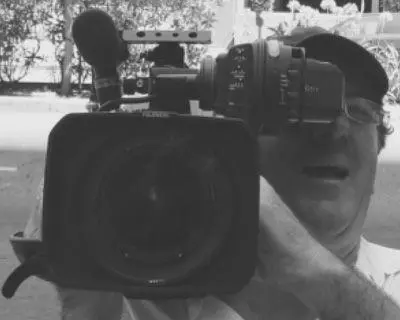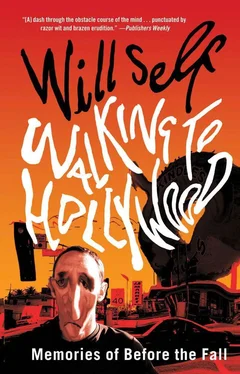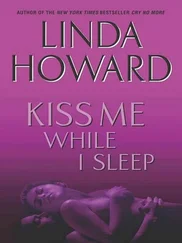Will Self - Walking to Hollywood
Здесь есть возможность читать онлайн «Will Self - Walking to Hollywood» весь текст электронной книги совершенно бесплатно (целиком полную версию без сокращений). В некоторых случаях можно слушать аудио, скачать через торрент в формате fb2 и присутствует краткое содержание. Год выпуска: 2011, Издательство: Grove/Atlantic, Inc., Жанр: Современная проза, на английском языке. Описание произведения, (предисловие) а так же отзывы посетителей доступны на портале библиотеки ЛибКат.
- Название:Walking to Hollywood
- Автор:
- Издательство:Grove/Atlantic, Inc.
- Жанр:
- Год:2011
- ISBN:нет данных
- Рейтинг книги:4 / 5. Голосов: 1
-
Избранное:Добавить в избранное
- Отзывы:
-
Ваша оценка:
- 80
- 1
- 2
- 3
- 4
- 5
Walking to Hollywood: краткое содержание, описание и аннотация
Предлагаем к чтению аннотацию, описание, краткое содержание или предисловие (зависит от того, что написал сам автор книги «Walking to Hollywood»). Если вы не нашли необходимую информацию о книге — напишите в комментариях, мы постараемся отыскать её.
Walking to Hollywood — читать онлайн бесплатно полную книгу (весь текст) целиком
Ниже представлен текст книги, разбитый по страницам. Система сохранения места последней прочитанной страницы, позволяет с удобством читать онлайн бесплатно книгу «Walking to Hollywood», без необходимости каждый раз заново искать на чём Вы остановились. Поставьте закладку, и сможете в любой момент перейти на страницу, на которой закончили чтение.
Интервал:
Закладка:
I didn’t like the way this was going; it wasn’t exactly that Busner was being hostile — it was more that his tone was off, his voice pitched a shade too low. And, now that I stopped to consider it, wasn’t there something sinister about the way he hadn’t aged over the years? He wasn’t merely familiar to me — I knew every hair that sprouted from the tragus of his annoyingly complicated ear — but overly familiar; his mannerisms were exaggerated, his coughs studiously rehearsed. It seemed he was an accomplished actor, called upon to play the part of Dr Zack Busner.
I swept this useless paranoia aside: I needed him to share my enthusiasm.
‘I want to find out who killed film — for film is definitely dead, toppled from its reign as the pre-eminent narrative medium of the age. I don’t know if film was murdered — but I suspect there’s a killer out there!’
My melodramatic words hung in the air — THERE’S A KILLER OUT THERE! — meaning-motes aglow in a sunbeam projected from between the louvres.
‘Ahem,’ Busner cleared his throat, frog in Froggy . ‘I see. There may be something in what you say — change is definitely in the, ah, air — new media, streaming, that sort of thing…’ His fingers fluttered so as to suggest he was entirely au fait. ‘But why now? I’ve never known you take any especial interest in film.’
‘Me?’ I snapped back. ‘I’ve been a film critic — I’ve even written a screenplay… well, most of one. You, on the other hand, probably don’t even know there’s a screenwriters’ strike on, and I can safely say that in all the hundreds of hours I’ve spent talking to you I’ve never heard you reference the movies once. Once!’
He was unfazed by my anger.
‘It’s all those credits that get to me,’ he remarked, swivelling to face the scuzzy window. ‘You know the kind of thing: Fifth Assistant Director, Manuel P. Zlotnik; Personal Assistant to Miss Pearlstein, Carol Goodenough — then, marching up the screen, entire squads of carpenters, electricians, best boys, gaffers, gofers and key grips, to say nothing of the special effects technicians… In my day all it took to make a film was Will Hay and the Fat Boy… Anyway’ — he rotated back to face me — ‘I know you like walking, but why walk to Hollywood? Los Angeles is hardly pedestrian-friendly.’
‘I–I, well, to be frank I think it’s safer that way — it’ll mean I can slip beneath their radar.’
‘They have radar? And there’s a “they”?’
‘Obviously I’m not suggesting there’s a conspiracy.’ I was wary of appearing paranoid; tolerant as Busner was of my more exaggerated phases, he’d never made any secret of the fact that he would section me if he saw fit. ‘I’m speaking figuratively: windscreens are screens, after all — or lenses. Vehicular transport is either a cinema that you sit in passively while the world is shown to you, or else, if you drive, you’re operating a camera, directing the movie of your journey.’
‘I see.’ He was looking at me vacantly, but I blanked him right back and continued:
‘If I want to discover who — or what — did for film I’ll be better off walking. Walking is so much slower than film — especially contemporary Hollywood movies, with their stuttering film grammar of split-second shots — and it isn’t framed, when you walk you’re floating in a fishbowl view of the world. There can’t possibly be any editing: no dissolves, no cuts, no fades, no split-screens — and, best of all, no special effects, no computer-cheated facsimiles of the world. You see, if I walk to Hollywood I’ll be creeping along outside the ambit of the filmic — like a Vietcong insurgent tunnelling through the jungle — and they won’t be able to see me coming!’

Despite myself I had become overexcited, singing out the last line as if it were an affirmation of faith. Busner ignored this. He had retrieved yet another Riddle set from his desk drawer and was bridging the lumpy summits of his coprolites with the brightly coloured little planks. THEY WON’T BE ABLE TO SEE ME COMING! still hung between us, the air around it puckered up as if by heat convection. I rose from my chair and walked across to the title: when I poked it the letters had the slippery resistance of inflated plastic, while my own words continued to resound in the catacombs of my mind: ‘… they won’t be able to see me coming!’
It dawned on me, as I stood looking down at Busner fiddling with his toy, that I had already exited sideways into a discarded scene, the chopped-up frames of which lay curling on the cutting-room floor. It had been bothering me that although there had been establishing shots and even flashbacks, the main narrative had begun without a credit sequence: no slow-revolving globe pierced by photons, no torch-bearing Grecian goddess, no searchlights playing over monumental 3-D type, and — most of all — no Dolby histrionics, the orchestra of thousands chuntering away: ‘Chun-chunn! Chun-chunn! Churrrurrrl-chun-chunn! Ta-tatta-taa! Ta-ta-ta-ta-ta-tatta-taaa!’ With Hollywood, I thought, the climax always came at the beginning — all the rest was an insensate nuzzling, as the camera roved over the silvery skin.
Another title materialized in the stuffy office, replacing my graphic paranoia: ONE YEAR EARLIER. I walked round it. From Busner’s side the plain white capitals were reversed:  — not that he was paying them any mind, as he’d dropped a Riddle tile and was now getting down awkwardly on his hands and knees to search for it in the kneehole of the desk.
— not that he was paying them any mind, as he’d dropped a Riddle tile and was now getting down awkwardly on his hands and knees to search for it in the kneehole of the desk.
I admired the title, which was positioned just so: in stark counterpoint to the cluttered shelves, the half-open door revealing a wedge of stock corridor, the dimply dullness of Beuys’s topographies. The title both moved things forwards — and backwards — while filing the current scene away. Not that it had been exactly a year previously — it was more like thirteen months, but the imprecision was forgivable dramatic licence.
ONE YEAR EARLIER
I was in a bistro in the Place Wilson in Toulouse. My POV was not from behind my eyes but disembodied, looking down at a 45-degree angle from somewhere near the ceiling at a table of diners. There was me, the writer Jonathan Coe, the journalist Simon Tiffin and his wife Alexa, Marianne Faithfull and François Ravard, and Yann Perreau, the organizer of Le Marathon des mots , the literary festival that had brought us all to town. It was a well-lit and wide shot, sharply focused so that all the detail of the scene — white napery, grey meat, red wine — was instantly caught. I could almost feel the snag of the diners’ teeth, taste the grease on their lips, and smell the foody vapours funnelling up their noses. Moreover, as it was an episode from my own life, I experienced an immodest thrill at the work expended by the production designers, lighting cameramen and all the other techies Busner was so dismissive of, in order to re-create it for the screen.
As for the casting — it was excellent. The man portraying Jonathan Coe had a strong likeness to the writer — the same symmetrical mop of greying hair, the same half-handsome features. François Ravard’s role had been nabbed by a swarthy little fellow, on whose broken nose the trademark heavy-black-frame spectacles appeared drawn on as if by a bored child. But perhaps because of this discord, François’s Gallic rolled r ’s, his exasperated clucks and wheedles of annoyance as he dealt with Marianne — who, très fatiguée , was demanding to be taken back to the hotel — seemed all the more authentic. Marianne was played by a dyed-blonde at least a decade younger than the real thing — but she husked to perfection.
Читать дальшеИнтервал:
Закладка:
Похожие книги на «Walking to Hollywood»
Представляем Вашему вниманию похожие книги на «Walking to Hollywood» списком для выбора. Мы отобрали схожую по названию и смыслу литературу в надежде предоставить читателям больше вариантов отыскать новые, интересные, ещё непрочитанные произведения.
Обсуждение, отзывы о книге «Walking to Hollywood» и просто собственные мнения читателей. Оставьте ваши комментарии, напишите, что Вы думаете о произведении, его смысле или главных героях. Укажите что конкретно понравилось, а что нет, и почему Вы так считаете.












